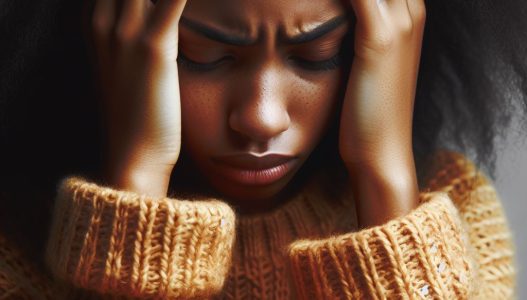In the tapestry of mental health narratives, the experiences of African American women weave a complex and often overlooked pattern. Anxiety, a pervasive and debilitating condition, disproportionately impacts Black women, manifesting in ways that reflect both personal and systemic struggles. Research indicates that Black women facing anxiety encounter more chronic and severe symptoms compared to their white counterparts, shedding light on the intricate intersection of race, gender, and mental health.
Historical Context and Contemporary Realities
To understand anxiety in African American women, one must acknowledge the historical and societal factors that shape their experiences. The legacy of systemic racism, oppression, and intergenerational trauma casts a long shadow over mental well-being. From the brutalities of slavery to enduring racial discrimination and microaggressions, Black women carry a unique burden that influences their mental health.
In contemporary society, this burden persists. The constant barrage of racial discrimination, socioeconomic disparities, and limited access to resources exacerbates stressors for Black women. The anxiety they face cannot be divorced from this context; it is deeply rooted in historical injustice and ongoing societal inequities
Manifestations of Anxiety
Anxiety manifests in diverse ways, often intersecting with cultural norms and personal coping mechanisms. For African American women, the symptoms of anxiety may manifest subtly or overtly, impacting various aspects of their lives.
Stress in outings and events is a common experience, as Black women navigate predominantly white spaces where they may feel scrutinized or marginalized. The pressure to conform to societal standards while combating stereotypes adds layers of stress to social interactions.
Goal avoidance becomes a coping mechanism in the face of overwhelming anxiety. Fear of failure, coupled with limited opportunities for advancement, can lead to a cycle of avoidance and self-doubt that impedes personal and professional growth.
Nervous habits, such as nail-biting or hair-pulling, serve as outlets for pent-up anxiety, offering temporary relief but perpetuating the underlying tension. Overworking becomes a means of proving oneself in environments where success is often measured against a backdrop of systemic bias.
Overthinking amplifies anxiety, as Black women grapple with the weight of societal expectations and the fear of falling short. The constant rumination over past experiences and future uncertainties feeds into a cycle of anxiety that is difficult to break.
Physical ailments, ranging from headaches to gastrointestinal issues, often accompany chronic anxiety. The mind-body connection underscores the toll that prolonged stress takes on overall health, highlighting the urgent need for holistic approaches to wellness.
Overeating or undereating may serve as coping mechanisms, offering temporary comfort or a sense of control in the midst of chaos. These behaviors, rooted in emotional responses to stress, can contribute to a vicious cycle of disordered eating and worsened anxiety.
Navigating Forward: Cultivating Resilience and Seeking Support
Despite the myriad challenges they face, African American women demonstrate remarkable resilience in the face of anxiety. Cultivating self-care practices, fostering supportive communities, and seeking professional help are vital steps towards healing and empowerment.
By acknowledging the intersectionality of race, gender, and mental health, society can work towards dismantling systemic barriers and promoting equitable access to resources. Advocating for culturally competent mental health services and challenging stigmas surrounding mental illness are crucial steps in fostering a more inclusive and supportive environment for Black women.
In conclusion, the narrative of anxiety in African American women is multifaceted and deeply intertwined with historical and societal contexts. By amplifying their voices, advocating for systemic change, and fostering empathy and understanding, we can create a more inclusive and equitable society where every individual has the opportunity to thrive.
References:
- Jones, A. (2020). “Anxiety in Black Women: Causes, Symptoms, and Treatments.” Healthline. Retrieved from [link].
- Woods-Giscombe, C. L. (2010). “Superwoman Schema: African American Women’s Views on Stress, Strength, and Health.” Qualitative Health Research, 20(5), 668–683. [link]
- Watkins, D. C. (2012). “Depression over the Adult Life Course for African American Men and Women: Toward a Framework for Research and Practice.” American Journal of Men’s Health, 6(3), 194–210. [link]

